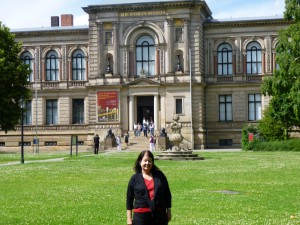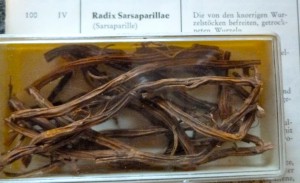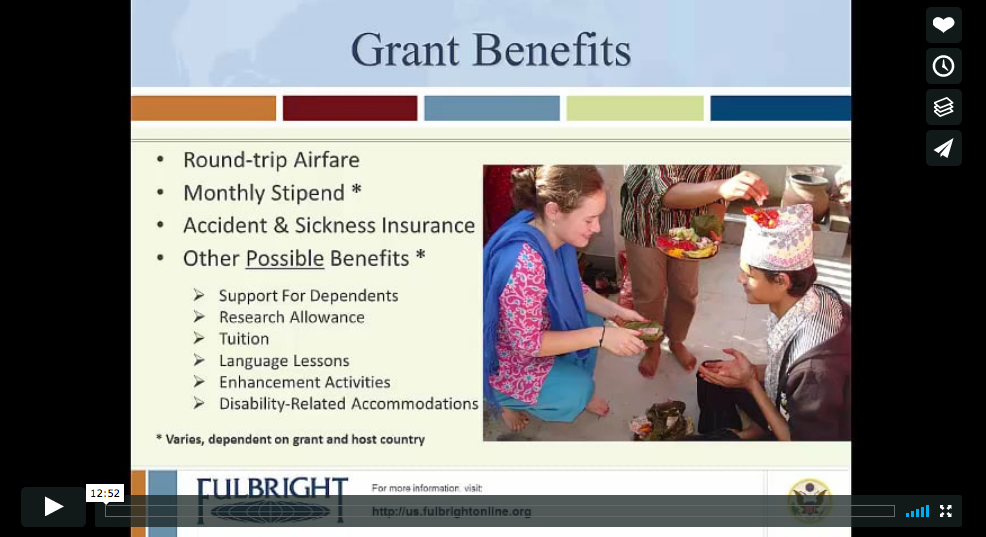The best research goes beyond the book. Thus, my Fulbright year in Germany opened up new ways of exploring an area of interest: the reception of New World plants into the medicine of Reformation-era Germany. My Study/Research grant allowed me to use the renowned early modern collection of the Herzog August Bibliothek (HAB) in Wolfenbüttel as basis for my historical research. I found that each genre located in the HAB—travel narratives, medical books, herbals, pharmacopoeias, almanacs, apothecary regulations—has its own way of looking at imported remedies. Every morning as I walked to the library, plugged in my laptop, and spread my books out on the reading-room table, I saw New World plants, foods, and peoples through the eyes of 16th century explorers, physicians, and theologians. But only outside the library among friends and different places could these findings come to life.
At a library garden party, I met a local woman who once taught beginning pharmacists. She offered to show me her pharmacy and collections of herbal specimens. Over discussions of how medicine has changed over the last 500 years, we became friends. In her specimen box, I saw the New World plants as they would have looked in 16th century Germany: a pale cross section of sassafras, twisted roots of sarsaparilla, and dark chunks of guaiacum bark, the same dried medicinal plants described in medical books and herbals from the 1500s.
While library research is a solitary activity, the HAB wisely provides a daily coffee break for its resident scholars. Embracing this collegial tradition took me away from the books and into a comfortable sitting room, where I could talk with other academics about their fascinating period studies of ethics, religion, art, music, and medicine. Geographically, I met people from as far away as Japan and Australia, and as close as Europe and the United States. They were at different stages of their academic careers, and often asked thought-provoking questions about my research, or helpfully suggested books related to my topic, creating a shared sense of community spirit.
On occasion, I left Wolfenbüttel to see archives and historical sites in other cities in order to engage in the richness of Europe’s culture. I visited botanical gardens, museums, and art galleries to make 16th century Europe really come alive. For example, a map in the Fuggerei museum in Augsburg traces the early trade routes of merchants from southern Germany to Santo Domingo and Buenos Aires in South America. Additionally, in Spain’s Museo del Prado hang portraits of Martin Luther, Philip II of Spain, and the Holy Roman Emperor, Charles V— fascinating figures who left their mark on 16th century Europe.
In summation, I studied how climate, commerce, and theology influenced the acceptance of New World plants in Germany during the 16th century. Now that the year is over, and I am thousands of miles away from the books that fascinated me, I must rely on my notes, photographs, and memories to remember my experience. Soon, my dissertation will bear the fruit of all the observations, connections, and friendships made during my unforgettable Fulbright year in Germany.
To Fulbright applicants:
I would say that the most important part of your application is to have a plan. You already have a great topic, but knowing how to find the specific information you need will give your application (and your research) depth and credibility. You can explore the resources of libraries, laboratories, and archives online to determine whether they will be useful for your project. Look into locations and find one that is convenient for housing, research, and transportation, so that you can keep relocation to a minimum.
Next, strengthen the tools you need to make the most of your plan. Work on the language you expect to use, including specialized skills, like a vocabulary of technical terms or the ability to read historical manuscripts and handwritten letters. Develop a brief statement of your research topic in your country’s language, plus an introductory email template to use in contacting archives.
Finally, proficiency with a spreadsheet or database program can help you organize data that you can systematically retrieve later—especially important if you, like me, are going to be writing up most of the results after your Fulbright year is over. All this preparation will not only give you a strong proposal, but will assure that you make the most of your time in your host country.




No Comments